When we do these interviews, it’s occasionally difficult for artists to come out of their shells and to share what really makes them tick. They are prepped to talk about their prosonas and their albums, but not about themselves and the real stories and motivations they have. IMAKEMADBEATS was different. The music engineer and coder has a clear passion for the creation of music that comes through even on audio. We covered a range of topics and concluded with one zinger of a question: How would you make something for someone to die to? Read on and get his answer.
Full Audio Interview
Planet Ill: I Make Mad Beats. That’s pretty to the point.
IMAKEMADBEATS: It is. I hope it is. I still get questions though.
Planet Ill: What made you decide to just come out with it?
IMAKEMADBEATS: I guess a lack of patience. There’s a lot of different reasons. One of the reasons was simply I wanted to actually…you know how sometimes, you can look at somebody and you can figure out what they’re about? You see somebody rocking the dreds with the mask and a cufi, you kind of figure out what it is. Well when I came out with the mask with the I Make Mad beats written over and over again, I figured it’s just wearing what you are. It’s representation in its purest form.
Planet Ill: What inspired you to make mad beats?
IMAKEMADBEATS: I like creating. I love creating. I’ve been an avid fan of creating and the creative process; engineering and reverse engineering since I can remember. I’ve been a computer programmer since I was 14 years old. I love creation and I love music so I happened to start creating music.
I’m kind of an extreme person, so if I start something, I’ll just keep going forever with it and it just happened to be beats.
Planet Ill: What would you say is the difference between manipulating your beats and manipulating your code?
IMAKEMADBEATS:There’s a lot more subjectivity involved with the music. Code, you’re following rules. And it’s the same thing with beats for the most part when you want to get a specific sound, but sometimes the rules just don’t matter. I can get a lot more passionate with it; there’s a lot more of my soul involved. Whereas with coding, it’s just more brains. Science. 100% science.
There’s a lot of science involved in music but there’s also a lot of spirit; a lot of soul. That’s the difference. I use the technical ability to enhance or to simply show what I have in my soul or what I have in my heart. I don’t do that in coding at all.
Planet Ill: When you are making beats, where do you get your ideas from?
IMAKEMADBEATS: Man there’s so many different answers for that. It’s never the same. Sometimes, it’s something I heard. Sometimes, it’s something that I wish I heard. When I feel like something is missing from my catalog as far as what I hear myself make or something that I wish other people would make. I have a lot of things in my head like, “Man I wish I had something like that!” I’m going through, I can’t find nothing from somebody, I’ll just make it.
Sometimes it’s as simple as hearing a record and just being like, I want to chop it like this. Or nobody chopped it like that. There’s a lot of pluses and minuses. Sometimes it’s what’s there, but a lot of times it’s what’s not there.
Planet Ill: Have you ever taken the same sample that someone else took and tried to make something different out of it?
IMAKEMADBEATS: I practice that even. Yeah, I do that all the time. Honestly I didn’t do that up until a couple years ago. Right up until 2008-2009. Before then I was like, “Oh It’s been used.” And just push the record over to the side. But I figured Hip-Hop’s been around long enough to where there’s so many samples being reused that it’s all about creativity now.
Planet Ill: Rap is an art you can’t own no loops… [R.I.P. Guru]
IMAKEMADBEATS: Exactly. It’s all about how you flip it. When I heard Just Blaze does the Rick James sample. When I heard how he flipped that. And I heard that long before Jay-Z dropped that[“Kingdom Come”]. He [Just Blaze] had it up on his MySpace page. When I heard that, I was like see, that’s what I’m talking about. That’s “Can’t Touch This,” but he flipped it. I don’t really shop those beats; I don’t really use those beats, it’s all just practice to me. I spend my whole day just  practicing and that’s it.
practicing and that’s it.
Planet Ill: Do you control your moods when you go into the studio? Do you allow your emotions to influence what comes out?
IMAKEMADBEATS: My best work has been under emotional situations. I love those situations. I Make Mad Beats, you know a lot of people they think mad is about quantity. It’s not. I grew up mad about a lot of things. You’ll hear that in a lot of my beats. I welcome emotion in production.
Planet Ill: How important do you think the music is to a song’s construction?
IMAKEMADBEATS: You know what? That’s a great question. It’s even better because I’m a Hip-Hop producer. Just because what a question like that allows you to do is it allows you to point out the small details. In Hip-Hop production, especially now, the last couple years, maybe four or five years, man, I fell like nobody’s paying attention to the details; the really small nuances that can change the complete emotion of what a song is.
In Hip-Hop production you have two people using the same sample. You can take it to Jazz; we can take it back to Quad Studios. I remember being in awe. The same piano mic’d up differently, two different mics angled differently, gave completely different emotions or feelings or vibes in the creation of the music that can convey two different messages. These very small things that people nowadays sample mp3’s and just don’t care about nothing. I’m not hating on sampling mp3’s if you want that sound, but just understand that there are so many different ways you can get the same sound to convey different things. But when you limit yourself in how you get the sound, you are limiting your production. You’re limiting what you can convey, your messages. There’s so much limiting.
I played basketball growing up and I almost tortured myself until I got my left hand down as good as my right hand because I hated only being able to go in one direction. Nowadays Hip-Hop production is so limited because you just go with an mp3 or whatever. I don’t know man I can go on for days with that, I’ll just stop right there.
Planet Ill: How important is engineering to the record making process?
IMAKEMADBEATS: The only people that know how important it is are engineers of some sort. I’m not saying you gotta be the guy recording the next Luther Vandross’ album. But it’s simple. A lot fo people; we’re living in the bedroom studio era. With that era it gives people the state of mind where they are like, “I can do that too! It’s all good I can do the same thing Dr. Dre does.”
Planet Ill: Dooon’t yooou beliieeevvee iiiiit!
IMAKEMADBEATS: Exactly. Don’t you believe it. This was a life changer for me. When I first discovered the difference between a consumer sound card, and a professional sound card, this was a decade ago. And it’s a small thing, it’s not a big thing, but it opened my brain to the idea that sound going through different things will sound different. When that happened? Everything just changed. Everything changed. The very first sound card I copped after the SoundBlaster 16 that came with my computer was a Delta 1010. Then we moved up to Pro Tools. Then the next thing, we moved on to converters from analog to digital. All kinds of stuff, man. And it’s simple. Real simple.
Producers out there nowadays, if you want some advice, no matter what kind of beats you make, whether it’s the greatest beat or the most average beat. It sounds good sonically you will be ten miles above the next dude in the next bedroom making the same music. That’s where you should start. You shouldn’t’ put out anything without making sure that it sounds good. I’m not talking a specific sound, but it’s got to sound good. Whether it’s the dustiness of Roc Marciano’s “Mausberg,” or the cleanliness of any Jay-Z album, whatever. But it’s gotta sound good. It’s gotta have a direction in the sound and I ain’t talking about what you sampling. I’m just talking about the actual tone quality
Planet Ill: What was your album making process?
IMAKEMADBEATS: My main concerning the beginning of the album is versatility. Mad Beats also stands for versatility. I wanted people to know I could make a variety of different sounds. That was one of the main thoughts in terms of putting it together. It definitely had a jam session quality to it. When I was going in the studio, a lot of the joints; some of the joints are longer than say the average song. Maybe the construction of them is a little bit different, not just because…some people call me a producer’s producer. I just say I care about what I do.
I care about it so much that I don’t want to seem like everybody else. It’s so easy to be flooded nowadays by so many producers with whatever it is they go to make beats. Say for example the track, “What’s It Gonna Be” with Hezekiah and Thomas Clay. If you listen to the beat structure on that, I just went completely for fun. The beat loops after like 20 bars. There’s some awkward setup but somehow, I feel like it worked. I wanted to showcase creativity as well as control.
As far as the artists that are on there, I definitely wanted to show versatility. My coastal representatives, different areas; different regions. I was also a family affair. I had to make sure my crew was on there representing and also that they could hang with some of the heavy weights of the underground.
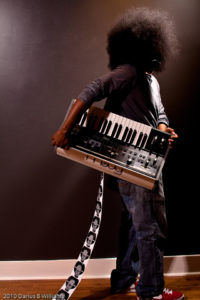 Planet Ill: In terms of crafting a high order album, how important is it to filter in the ideas of others?
Planet Ill: In terms of crafting a high order album, how important is it to filter in the ideas of others?
IMAKEMADBEATS: Very important. I’ve always been team oriented. I would prefer to be a part of a team than to be a solo act any day. I just happened to be blessed enough to be surrounded by a really good creative and supporting team. From my manager Shawn, he played the guitar on the intro. To a couple other guys on the album who are real close to me. My brother TzarisM he’s a producer/MC as well, A lot of the other Doc Side officers helped me out My good friend Greg Barbone he’s one of the greatest instrumentalists I’ve ever seen in my life. I’m definitely all about team.
Not saying that I wouldn’t do anything on my own or completely my own thought. I definitely will do that just to get out unadulterated thoughts but I’m definitely in support of a team effort.
Planet Ill: If someone asked you to make music to die to, and they want you to make the last music that they will ever hear or the music that they put to rest to, how would you put that together?
IMAKEMADBEATS: First of all, that’s an incredible question. Second, I would somehow try to convey in this music what I believe happens when you die. And that’s not anything sad. It would take some time. If I ever got that request then I would draft the help…
Planet Ill: Don’t worry you got 6 months
IMAKEMADBEATS: I would call up a couple homies and we would get in the lab, the previously mentioned Greg Barbone, we would create something that I feel would display a moving on to something greater. Something powerful. One of my things that I love to do is I try to make music to change someone’s life. When I made the Daylight EP with Butta Verses, I wanted to make those type of anthems that whether you were angry, sad or inspired, whatever it is, I wanted to create music that would enhance that feeling. In this case when someone is dying it would be to affirm to them that there is something greater for them waiting.
Follow Odeisel on Twitter @ http://twitter.com/odeisel
Follow Us on Twitter @ http://twitter.com/planetill
Join Us on the Planet Ill Facebook Group for more discussion
Follow us on Networked Blogs

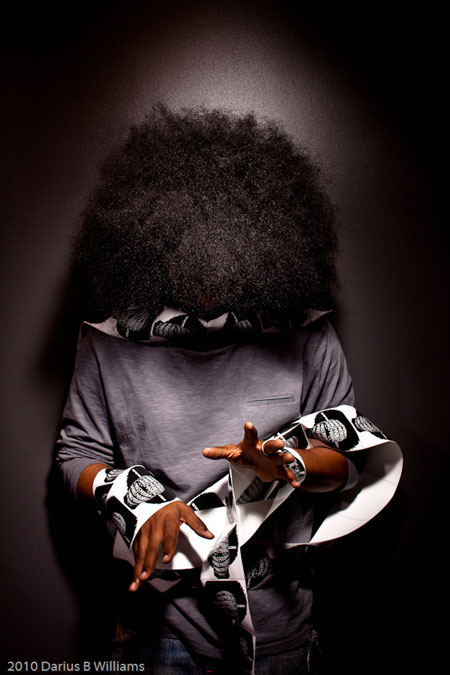
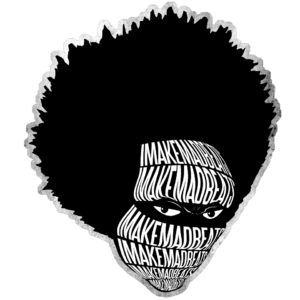
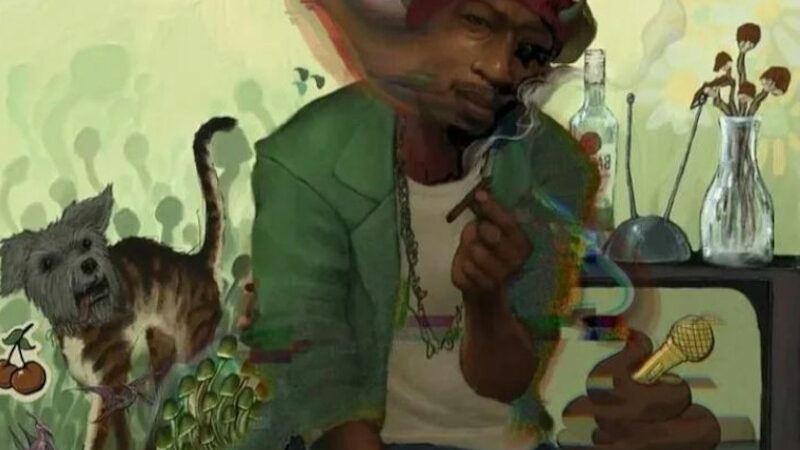
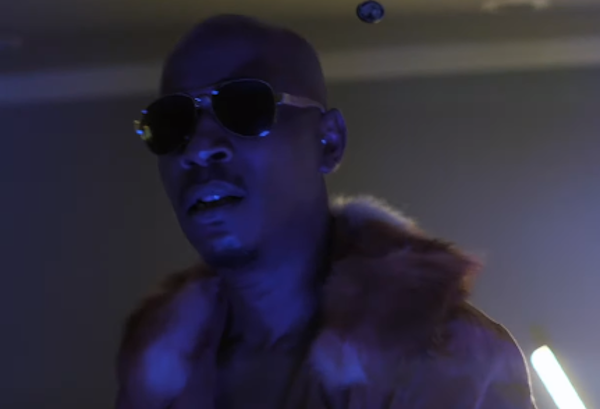
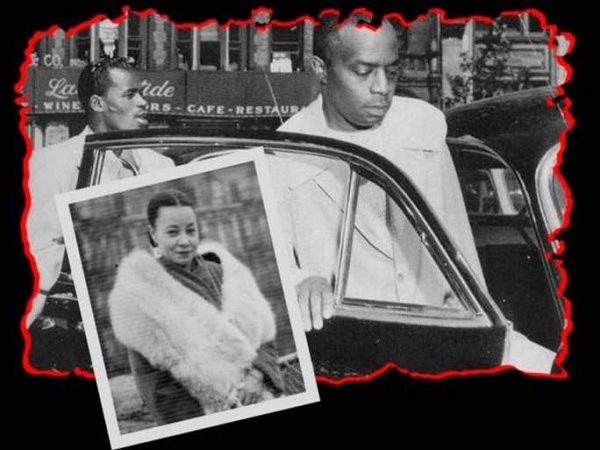

3 thoughts on “IMAKEMADBEATS: Making Music To Live For And Die To”